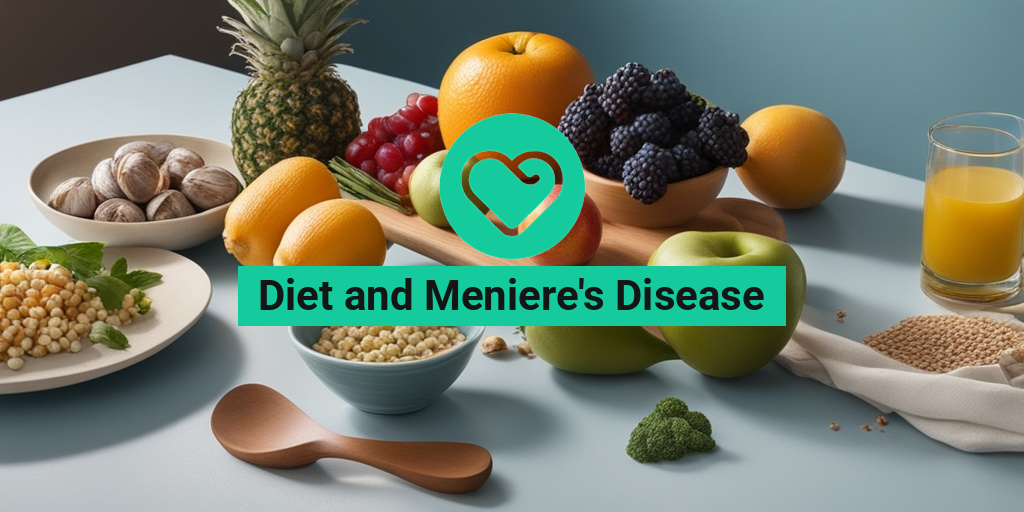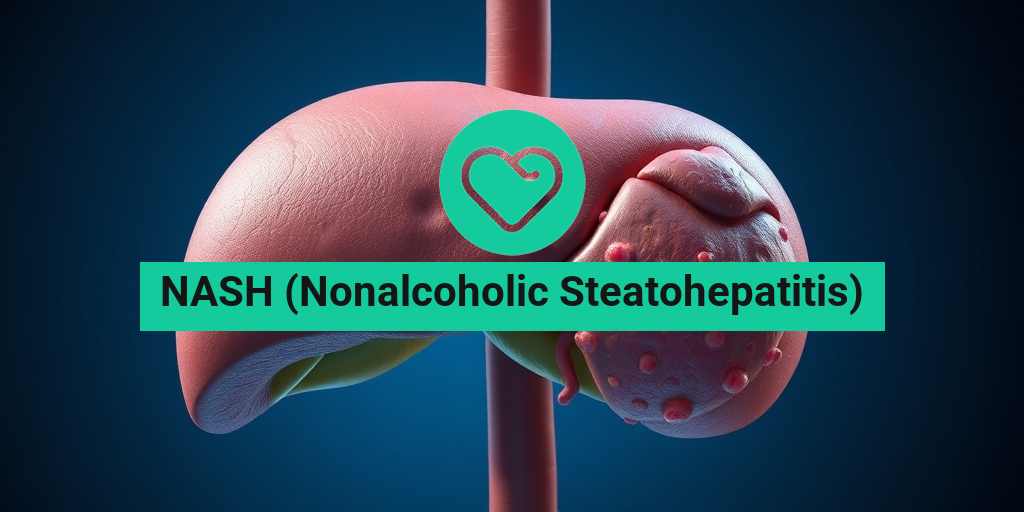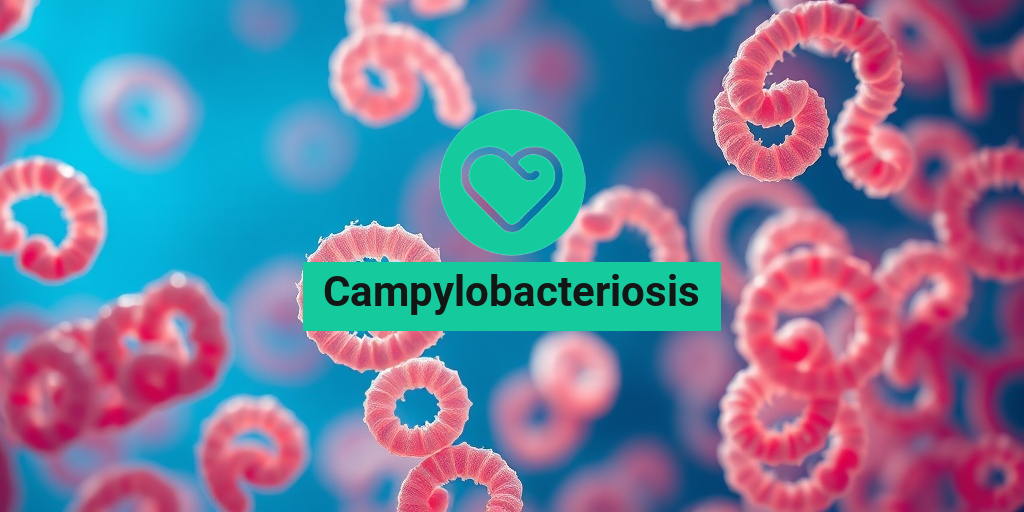What Is Meniere’s Disease?
Meniere’s disease is a chronic and debilitating disorder of the inner ear that affects balance and hearing. It is characterized by recurring episodes of vertigo, tinnitus, hearing loss, and ear fullness. The symptoms can be unpredictable and vary in severity, making it challenging to diagnose and treat.
The exact cause of Meniere’s disease is still unknown, but it is believed to be related to an abnormality in the inner ear’s fluid balance system. This imbalance can lead to an accumulation of fluid in the inner ear, causing the symptoms mentioned above.
Meniere’s disease can significantly impact daily life, making everyday activities a struggle. The unpredictable nature of the symptoms can cause anxiety, depression, and social isolation. It is essential to seek medical attention if you experience any of the symptoms, as early diagnosis and treatment can help alleviate the symptoms and improve quality of life.
The Role of Diet in Meniere’s Disease
Diet plays a crucial role in managing Meniere’s disease. While there is no specific “Meniere’s diet,” research suggests that certain foods and nutrients can help alleviate symptoms. A well-balanced diet rich in whole foods, fruits, and vegetables can help reduce the frequency and severity of episodes.
Foods to Focus On
Include foods rich in:
- Omega-3 fatty acids: Found in fatty fish, flaxseeds, and walnuts, omega-3s can help reduce inflammation and alleviate symptoms.
- Antioxidants: Foods high in antioxidants, such as berries, leafy greens, and other fruits and vegetables, can help reduce oxidative stress and inflammation.
- Whole grains: Whole grains, such as brown rice, quinoa, and whole wheat, can help regulate blood sugar and insulin levels.
- Lean proteins: Include lean protein sources like poultry, fish, and legumes to help regulate blood sugar and insulin levels.
Foods to Avoid or Limit
Try to limit or avoid:
- Sodium-rich foods: Excessive sodium can exacerbate symptoms, so limit processed and packaged foods, and season with herbs and spices instead of salt.
- Sugar and refined carbohydrates: Limit sugary drinks, baked goods, and refined grains, as they can cause blood sugar fluctuations and worsen symptoms.
- Caffeine and alcohol: Both can exacerbate symptoms, so consume in moderation or avoid altogether.
While diet plays a significant role in managing Meniere’s disease, it is essential to work with a healthcare professional to develop a personalized treatment plan. Additionally, resources like Yesil Health AI (yesilhealth.com) can provide evidence-based health answers and guidance on managing Meniere’s disease.
Remember, everyone’s experience with Meniere’s disease is unique, and it may take some trial and error to find the right dietary approach. Be patient, stay consistent, and work with your healthcare team to find the best approach for you. 🥗💪

Foods That Trigger Meniere’s Symptoms
When it comes to managing Meniere’s disease, diet plays a crucial role. While there is no specific “Meniere’s diet,” certain foods can exacerbate symptoms, making life even more challenging for those affected. In this section, we’ll explore the foods that can trigger Meniere’s symptoms, so you can make informed choices to alleviate your discomfort.
Sodium-Rich Foods
Sodium is a major culprit when it comes to triggering Meniere’s symptoms. Consuming high-sodium foods can lead to fluid retention, which can worsen vertigo, tinnitus, and hearing loss. Limit or avoid foods high in sodium, such as:
- Processed meats like hot dogs, sausages, and bacon
- Canned goods, including soups, vegetables, and meats
- Frozen meals, like TV dinners and pizza
- Condiments, such as soy sauce and teriyaki sauce
Caffeine and Sugar
Caffeine and sugar can also trigger Meniere’s symptoms. Caffeine can increase heart rate and blood pressure, which can worsen vertigo and tinnitus. Meanwhile, consumption of high-sugar foods can lead to fluctuations in blood sugar levels, exacerbating symptoms. Be mindful of your intake of:
- Coffee, tea, and energy drinks
- Sugary snacks, like candy, cookies, and cakes
- Fruit juices and sweetened beverages
Food Additives and Preservatives
Certain food additives and preservatives can trigger Meniere’s symptoms in some individuals. Monosodium glutamate (MSG) and aspartame are two common culprits. Be cautious when consuming:
- Chinese food, which often contains MSG
- Diet sodas and sugar-free gum, which may contain aspartame
By being aware of these trigger foods, you can take the first step in managing your Meniere’s symptoms through dietary changes. Remember, everyone’s triggers may vary, so it’s essential to keep a food diary to track your symptoms and identify your specific triggers.
—
Foods That Help Alleviate Meniere’s Symptoms
While certain foods can exacerbate Meniere’s symptoms, others can help alleviate them. Incorporating the right foods into your diet can make a significant difference in your overall well-being. Let’s explore the foods that can help alleviate Meniere’s symptoms.
Omega-3 Rich Foods
Omega-3 fatty acids have potent anti-inflammatory properties, which can help reduce inflammation and alleviate Meniere’s symptoms. Include omega-3 rich foods in your diet, such as:
- Fatty fish, like salmon, sardines, and mackerel
- Nuts and seeds, like walnuts, flaxseeds, and chia seeds
Antioxidant-Rich Foods
Antioxidants can help combat oxidative stress, which may contribute to Meniere’s disease. Increase your intake of antioxidant-rich foods, such as:
- Berries, like blueberries, strawberries, and raspberries
- Leafy greens, like spinach, kale, and collard greens
- Other fruits, like pomegranates, grapes, and apples
Hydrating Foods
Proper hydration is essential for maintaining fluid balance in the inner ear, which can help alleviate Meniere’s symptoms. Include hydrating foods in your diet, such as:
- Watermelon, cucumbers, and celery
- Herbs, like mint, basil, and cilantro
By incorporating these foods into your diet, you may experience a reduction in Meniere’s symptoms. Remember to always consult with a healthcare professional before making significant changes to your diet. 🥗💦

The Importance of Hydration in Meniere’s Disease
When it comes to managing Meniere’s disease, hydration plays a crucial role. Dehydration can exacerbate symptoms, making it essential to drink plenty of water throughout the day. In this section, we’ll explore the importance of hydration in Meniere’s disease and provide tips on how to stay hydrated.
Why Hydration Matters in Meniere’s Disease
Dehydration can worsen Meniere’s symptoms, including vertigo, tinnitus, and hearing loss. When the body is dehydrated, the inner ear’s balance system can become disrupted, leading to increased dizziness and nausea. Furthermore, dehydration can cause blood volume to decrease, reducing blood flow to the inner ear, which can further exacerbate symptoms.
Tips for Staying Hydrated with Meniere’s Disease
To stay hydrated, aim to drink at least eight glasses of water per day. You can also consume hydrating foods like watermelon, cucumbers, and celery. Additionally, consider incorporating electrolyte-rich beverages like coconut water or sports drinks to help replenish lost electrolytes.
💧 Remember to drink water regularly throughout the day, rather than consuming large amounts at one time. This can help prevent dehydration and reduce symptoms.
How to Identify Food Triggers for Meniere’s
Foods can play a significant role in triggering Meniere’s symptoms. Identifying and avoiding trigger foods can help alleviate symptoms and improve overall quality of life. In this section, we’ll explore how to identify food triggers and provide guidance on creating a personalized diet plan.
Common Food Triggers for Meniere’s Disease
Certain foods can exacerbate Meniere’s symptoms, including:
- Salt: Consuming high amounts of salt can increase fluid retention, leading to increased pressure in the inner ear and worsened symptoms.
- Caffeine: Caffeine can cause vasoconstriction, reducing blood flow to the inner ear and exacerbating symptoms.
- Gluten: Some people with Meniere’s may experience gluten sensitivity, which can trigger symptoms.
- Food additives: Certain food additives, such as MSG and aspartame, can trigger symptoms in some individuals.
Keeping a Food Diary to Identify Triggers
To identify food triggers, keep a food diary to track your diet and symptoms. Write down everything you eat and drink, along with any symptoms you experience. This can help you identify patterns and correlations between specific foods and symptoms.
📝 Be sure to include details like portion sizes, cooking methods, and any additives or preservatives used in food preparation.
By staying hydrated and identifying food triggers, you can take control of your Meniere’s disease symptoms and improve your overall quality of life. In the next section, we’ll explore the role of diet in managing Meniere’s disease and provide guidance on creating a personalized diet plan.
![]()
Meniere’s Disease and Gut Health
When it comes to managing Meniere’s disease, many people overlook the crucial role that gut health plays in alleviating symptoms. Research suggests that there is a strong connection between the gut microbiome and the inner ear, which can impact the severity of Meniere’s disease symptoms. 🤯
The Gut-Brain- Ear Axis
The gut, brain, and ear are interconnected through the gut-brain-ear axis. The gut microbiome produces neurotransmitters and hormones that communicate with the brain, which in turn affects the inner ear and balance system. An imbalance of the gut microbiome, also known as dysbiosis, can disrupt this communication, leading to exacerbated Meniere’s disease symptoms. 🤝
Inflammation and Oxidative Stress
Inflammation and oxidative stress are two key factors that contribute to Meniere’s disease progression. A diet high in processed foods, sugar, and unhealthy fats can lead to chronic inflammation, which can further exacerbate symptoms. On the other hand, a diet rich in fruits, vegetables, and omega-3 fatty acids can help reduce inflammation and oxidative stress. 🥗
Creating a Balanced Diet for Meniere’s Management
While there is no specific “Meniere’s diet,” a balanced diet that focuses on whole, nutrient-dense foods can help alleviate symptoms. Here are some dietary recommendations to get you started: 🍴
Hydrate and Electrolyte Balance
Aiming for at least 8-10 glasses of water per day can help maintain proper fluid balance and reduce symptoms of Meniere’s disease. Additionally, incorporating electrolyte-rich foods like bananas (potassium), avocados (potassium), and nuts (magnesium) can help regulate electrolyte balance. 💧
Omega-3 Rich Foods
Fatty fish like salmon, sardines, and mackerel are rich in omega-3 fatty acids, which can help reduce inflammation and oxidative stress. Aim for 2-3 servings of fatty fish per week. 🐟
Antioxidant-Rich Foods
Foods high in antioxidants like berries, leafy greens, and other fruits and vegetables can help reduce oxidative stress and inflammation. Aim for 5-7 servings of colorful fruits and vegetables per day. 🥗
Low-Sodium Diet
A low-sodium diet can help reduce fluid retention and alleviate symptoms of Meniere’s disease. Aim for less than 2,300 milligrams of sodium per day. 💸
By incorporating these dietary recommendations into your daily routine, you can take the first step towards managing Meniere’s disease symptoms and improving your overall health. Remember, everyone’s body is unique, so it’s essential to work with a healthcare professional to tailor a diet that suits your individual needs. 🙏

Frequently Asked Questions about Diet and Meniere’s Disease
Does Diet Affect Meniere’s Disease?
Yes, diet can play a significant role in managing Meniere’s disease. A well-balanced diet can help alleviate symptoms, while a poor diet can exacerbate them. Research suggests that dietary changes can improve vertigo, tinnitus, and hearing loss associated with Meniere’s disease.
What is the Best Diet for Meniere’s Disease?
While there is no single “Meniere’s diet,” a low-sodium, low-sugar, and balanced diet rich in fruits, vegetables, and whole grains can help alleviate symptoms. Some people have reported benefits from following a keto diet or vegan diet, but more research is needed to confirm these findings.
What Foods Should I Avoid with Meniere’s Disease?
It’s essential to limit or avoid foods that can trigger or worsen Meniere’s symptoms. These include:
- Salty foods, which can increase fluid retention and worsen symptoms
- Caffeine, which can exacerbate tinnitus and vertigo
- Processed foods, which can be high in sodium and sugar
- Foods high in sugar, which can cause energy crashes and worsen symptoms
Can Food Allergies Trigger Meniere’s Disease Symptoms?
Yes, food allergies or sensitivities can trigger or worsen Meniere’s symptoms. Common culprits include gluten, dairy, and soy. If you suspect a food allergy, consult a healthcare professional for proper diagnosis and treatment.
How Can I Manage Meniere’s Disease Through Diet?
To manage Meniere’s disease through diet, focus on:
- Hydrating adequately to help regulate fluid balance
- Eating regular, balanced meals to maintain stable energy levels
- Incorporating omega-3 rich foods, such as fatty fish, to reduce inflammation
- Limiting sodium intake to reduce fluid retention
Where Can I Find More Information on Diet and Meniere’s Disease?
Consult with a healthcare professional or a registered dietitian for personalized dietary advice. You can also explore reputable online resources, such as the Vestibular Disorders Association or the Meniere’s Disease Foundation, for more information on diet and Meniere’s disease.




